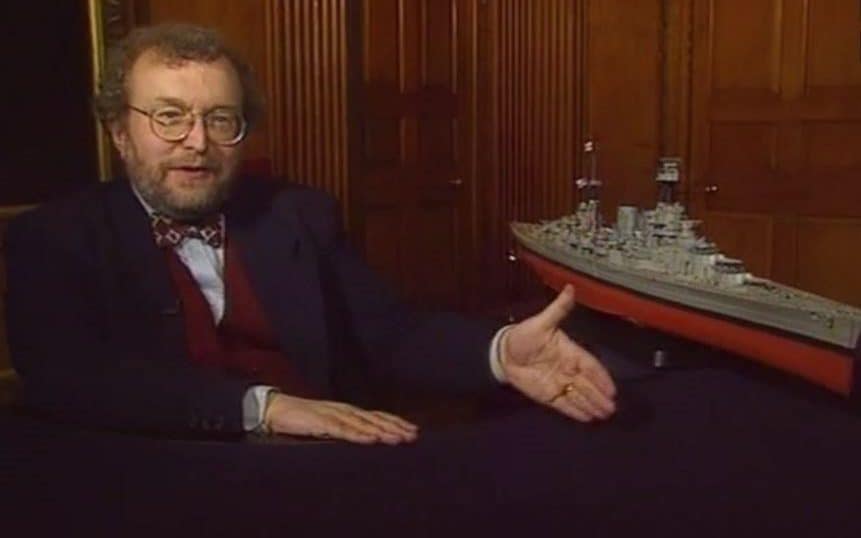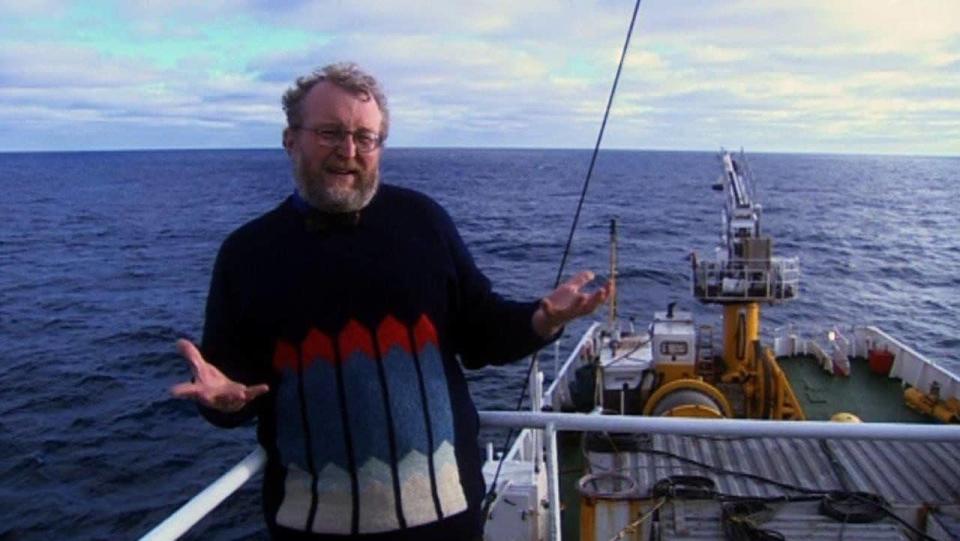Eric Grove, entertaining maritime historian who organised conferences to discuss peace after the Cold War – obituary

- Oops!Something went wrong.Please try again later.
Professor Eric Grove, who has died aged 72, was a historian and strategist who helped bring the Cold War to a peaceful end.
He was a freelance consultant to the Foundation for International Security’s Common Security Programme in 1988 when he persuaded a group of academics and retired officers (and a single serving officer, Captain Gordon Wilson RN) from the UK, US and Russia to meet informally to discuss the prevention of war at sea. Soon the meetings advanced to formal exchanges, visits to other bases and ships, and in 1990 to substantive discussions between serving naval officers.
The impact of these “Adderbury [Oxfordshire] talks” was significant, and in the 1990s led to formal meetings between the three navies including both tabletop war-gaming and real-life exercises. The acronym RUKUS, for Russia-UK-US, was coined, and the emphasis shifted to cooperation in a post-Cold War world, with discreet annual meetings rotating between the countries.
In the US the talks moved from Brown University to the Naval War College at Newport, Rhode Island, and in Russia led to unprecedented visits by the Americans and British to Crimea, Severomorsk and St Petersburg.
Grove’s initiative contributed to the Cold War coming to a peaceful end, though his efforts were unacknowledged, and after he had dedicated a book to a woman suspected by the Russian navy to be a GRU agent, he was barred from later meetings.
Afterwards, he felt that the evolution of the new Russia into an authoritarian state was in part due to the failure of the West to help manage the transition from the old USSR.
Eric John Grove was born on December 3 1948 in Bolton and brought up in Aberdeen where he was educated at the grammar school and graduated from the university with a degree in History.
After reading for an MA in war studies at King’s College London, he was appointed a lecturer at Britannia Royal Naval College, Dartmouth, in 1971. There, in contrast to the traditions of strict naval discipline, Grove cultivated the image of a Left-leaning, bearded, tweed-jacketed, bow-tied professor, although he was only a few years older than most of his students.
His energy, eccentricity and encyclopedic knowledge impressed all. His first book, as a schoolboy, was a spotter’s book of Aberdeen trams, and in the 1970s he wrote several works about tanks and armoured warfare.

But his association with the Navy gave rein to his capacity for absorbing detail, and his elephantine memory for technical detail about ships, their guns and engines, which was extended to cover strategy and politics.
In 1980 Grove initiated an annual exchange between Dartmouth and the US Naval Academy at Annapolis, but he returned unsettled and frustrated by changes to the curriculum at Dartmouth which demoted his specialist subject of naval history.
Despite promotion to Deputy Head of Strategic Studies and International Affairs in 1984, he left to work for the Council for Arms Control before becoming a freelance academic and defence consultant.
His naval studies began with Vanguard to Trident (1987), an authoritative review of the postwar Royal Navy. In 1993 he joined the department of politics at Hull university, where he obtained a PhD on the basis of his published work, and where he helped author the first edition of The Fundamentals of British Maritime Doctrine (1995).
In 1997 he was absent from the UK as a visiting fellow at the Centre for Maritime Policy at the University of Wollongong, New South Wales, and, to his chagrin, unable to contribute to the Blair government’s Strategic Defence Review.

On returning to Hull, he founded a new undergraduate course in war and security studies, before moving in 2005 to the University of Salford as professor of naval history and director of the Centre for International Security and War Studies. In 2012 he moved again, to Liverpool Hope University, as professor of naval history and fellow in security studies.
Grove was a natural teacher, lecturing entertainingly without notes or visual aids, his arms revolving like windmill sails. He contributed to television programmes including the BBC’s Timewatch and Channel 4’s Hunt for the Hood and the Bismarck; the wreck-hunter David Mearns recalled that “Eric could describe every second of the battle between Hood and Bismarck in vibrant detail and then explain its overall strategic significance in the battle of the Atlantic.”
His influence extended to navies of countries including Taiwan and South Korea, and in 2000 he contributed suggestions to the draft of the first edition of Australian Maritime Doctrine. He was also a regular visiting lecturer at the South African Staff College in Cape Town.
Grove sang countertenor, possessed an extensive repertoire and once, during a wait at Oslo airport, amused the crowd with a rendition of Purcell’s Sound the Trumpet. He was a man for whom one more vodka and one more story was never a problem. Over the years his homes and university rooms were crowded with teetering towers of books, and, like his books, his private affairs were often in danger of collapse.
Eric Grove was thrice married: first, in 1973, to Elizabeth Stocks (dissolved 2005); then to Sarian Greville who died in 2016; and the following year to Swee Poh Kanagasabay.
Eric Grove, born December 3 1948, died April 15 2021

